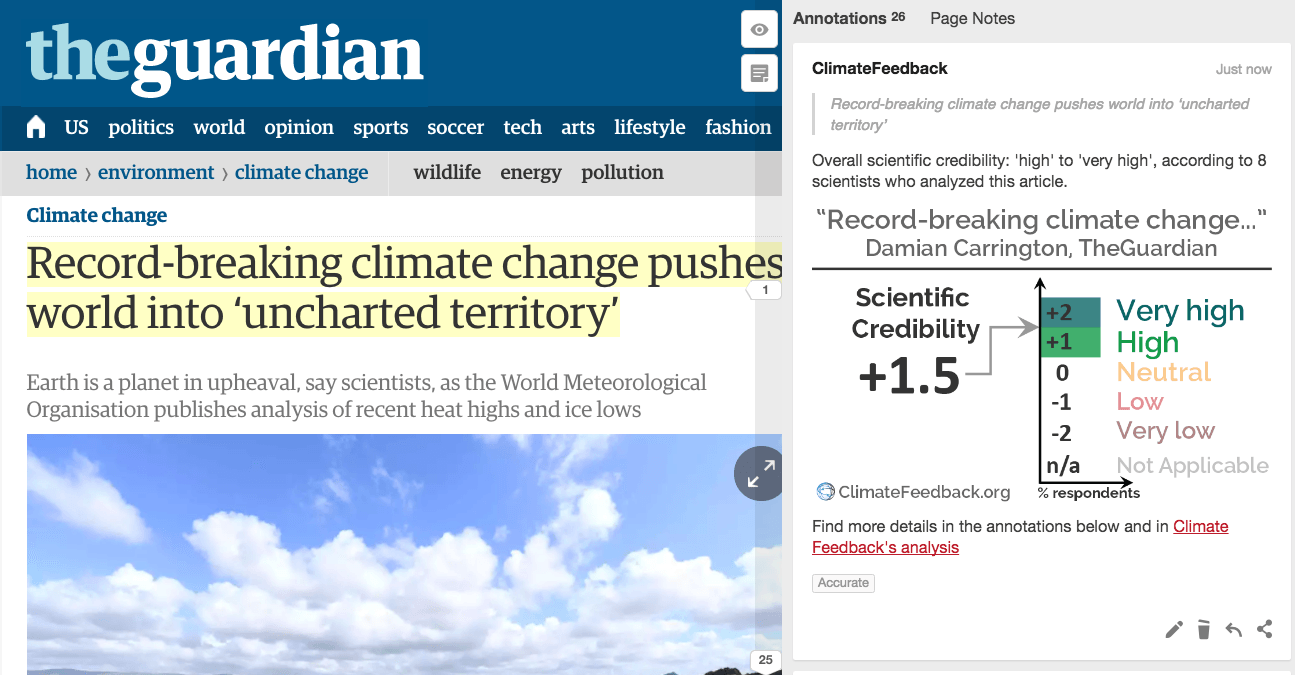
Analysis of "Record-breaking climate change pushes world into ‘uncharted territory’"
“The article clearly and concisely documents some of 2016’s climate extremes and puts them in the context of the warming trend.”
Reviews of content from

“The article clearly and concisely documents some of 2016’s climate extremes and puts them in the context of the warming trend.”
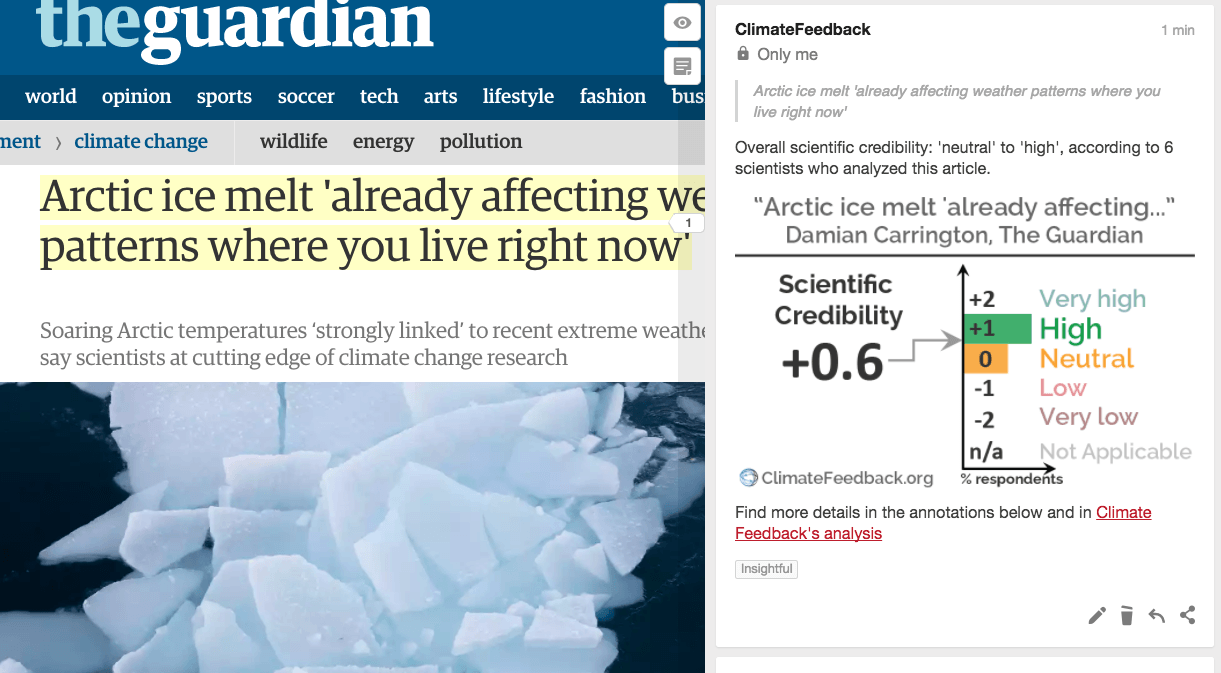
“The article nicely introduces some of the emerging science linking Arctic climate change to extreme weather at lower latitudes. There are no major inaccuracies and the author has sought expert comment form several prominent scientists. However, the article fails to fully capture the large uncertainty about how Arctic warming may influence weather in places further south and how big this effect might be.”

Claim:
The jet stream meanders more, with big loops bringing warm air to the frozen north and cold air into warmer southern climes.
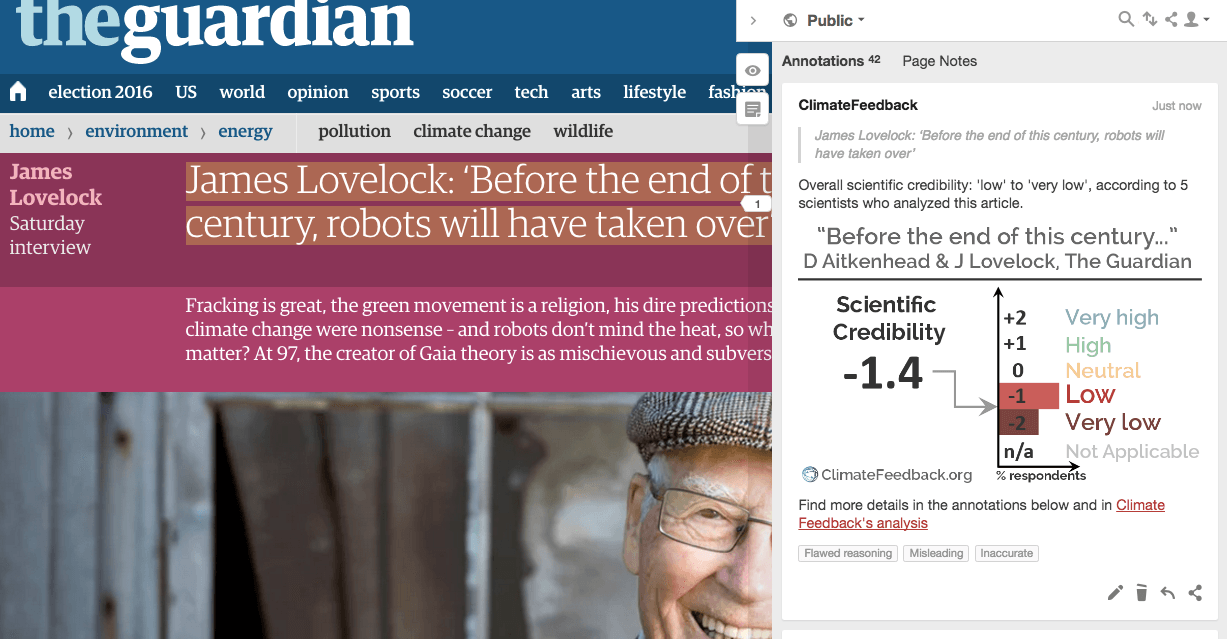
“Extraordinary claims demand extraordinary evidence, and Lovelock has not even come up to the standards of providing what the scientific community would consider to be ordinary evidence. The journalist did not balance Lovelock’s statements with a set of clear statements saying that the vast majority of informed climate scientists (as, for example, represented by the IPCC reports) have reached consensus on conclusions that are diametrically opposed to what Lovelock is saying, and that the IPCC scientists have backed up their statements with a wealth of empirical data, whereas Lovelock is largely opining without providing any substantive evidence to support his rather extraordinary claims.”
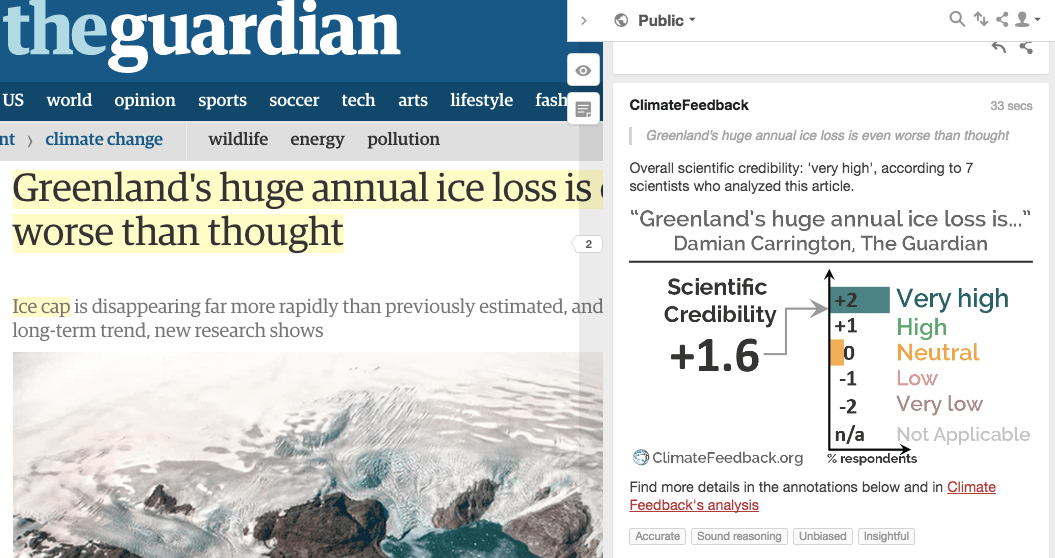
“I find the headline accurate and supported by the article. The article explains the novelty and impact of the research accurately for the general readership and in particular the context provided from the scientists works really well in this regard.”
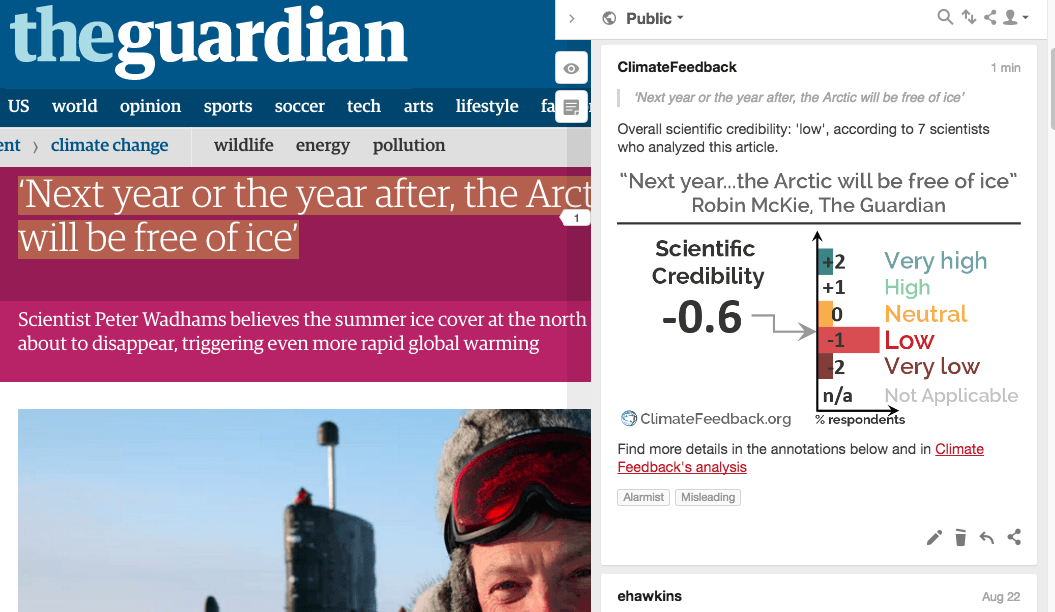
“before propagating a marginal view, one should ensure having a very strong argumentation; in this interview no argumentation is put forward to support Peter Wadhams’ central claim. Wadhams’ alarmism is potentially harmful, because when such spectacular predictions are not realized some people may perceive the whole scientific community or science itself as untrustworthy.”
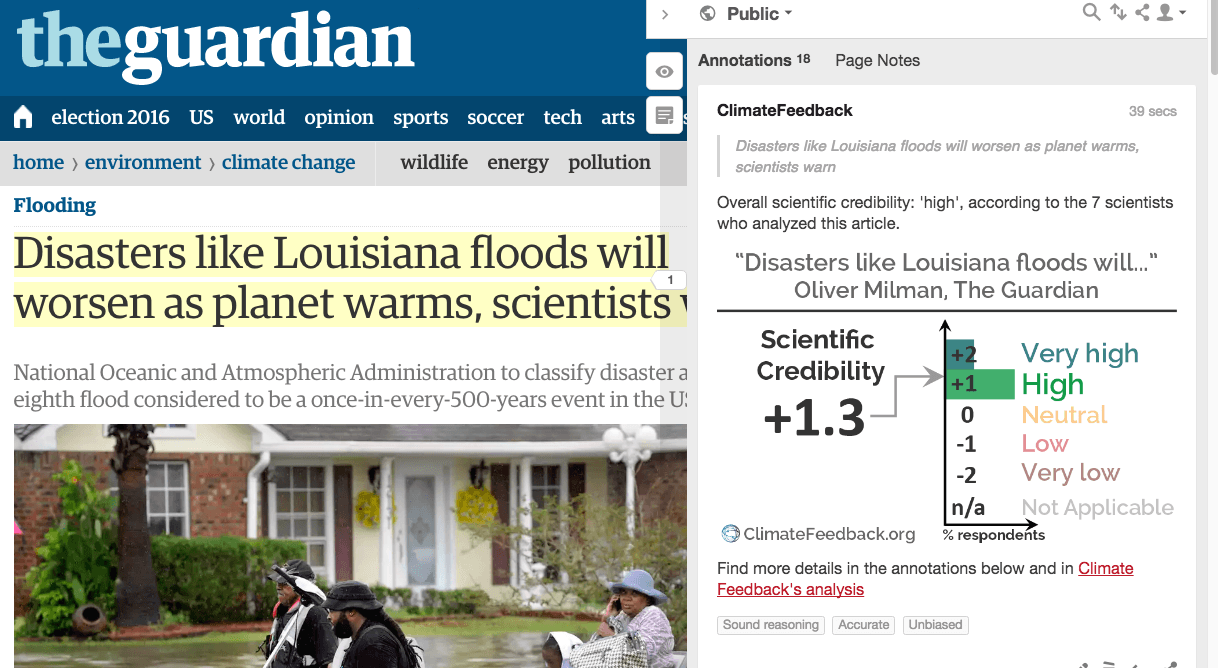
“this article does a good job reporting on the recent floods in Lousiana and, more generally, the climate-change-induced changes in the water cycle that underlie scientists’ concerns about future increase in floods. However, “heavy rainfall” is not strictly synonymous to “flooding”…”
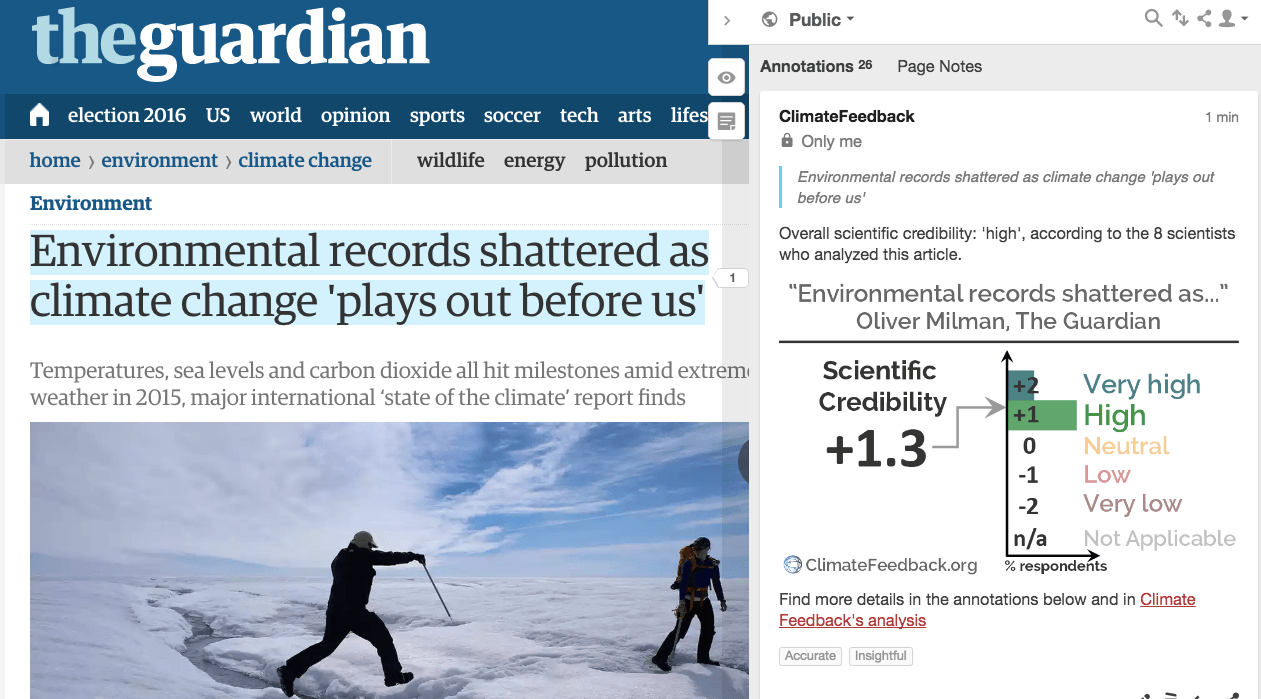
The article summarizes the main findings of the “2015 state of the climate” report published by the National Oceanic and Atmospheric Administration. Overall it accurately reports the main findings that many global indicators of the Earth’s climate, notably the global surface temperature, have set new records in 2015 under the joint influence of ongoing human-induced climate change and a strong El Niño event.